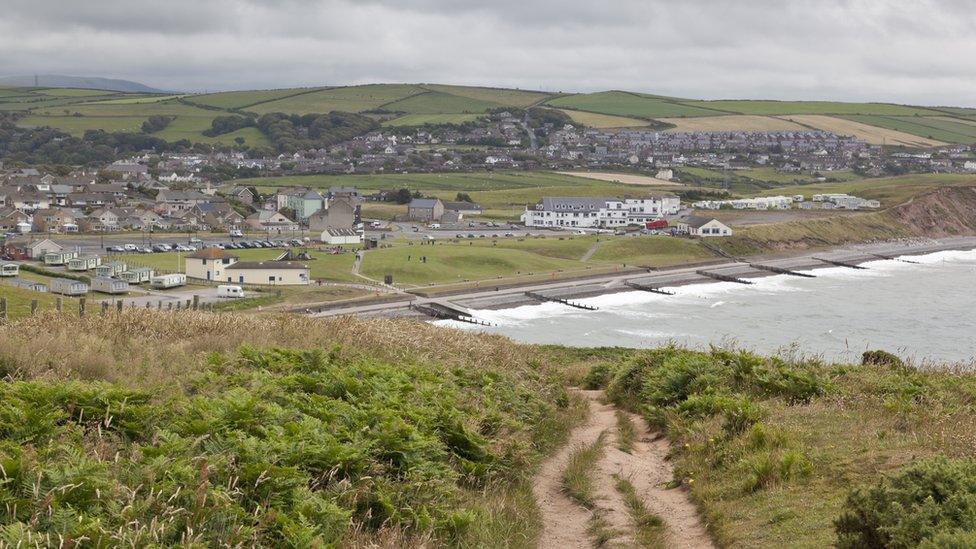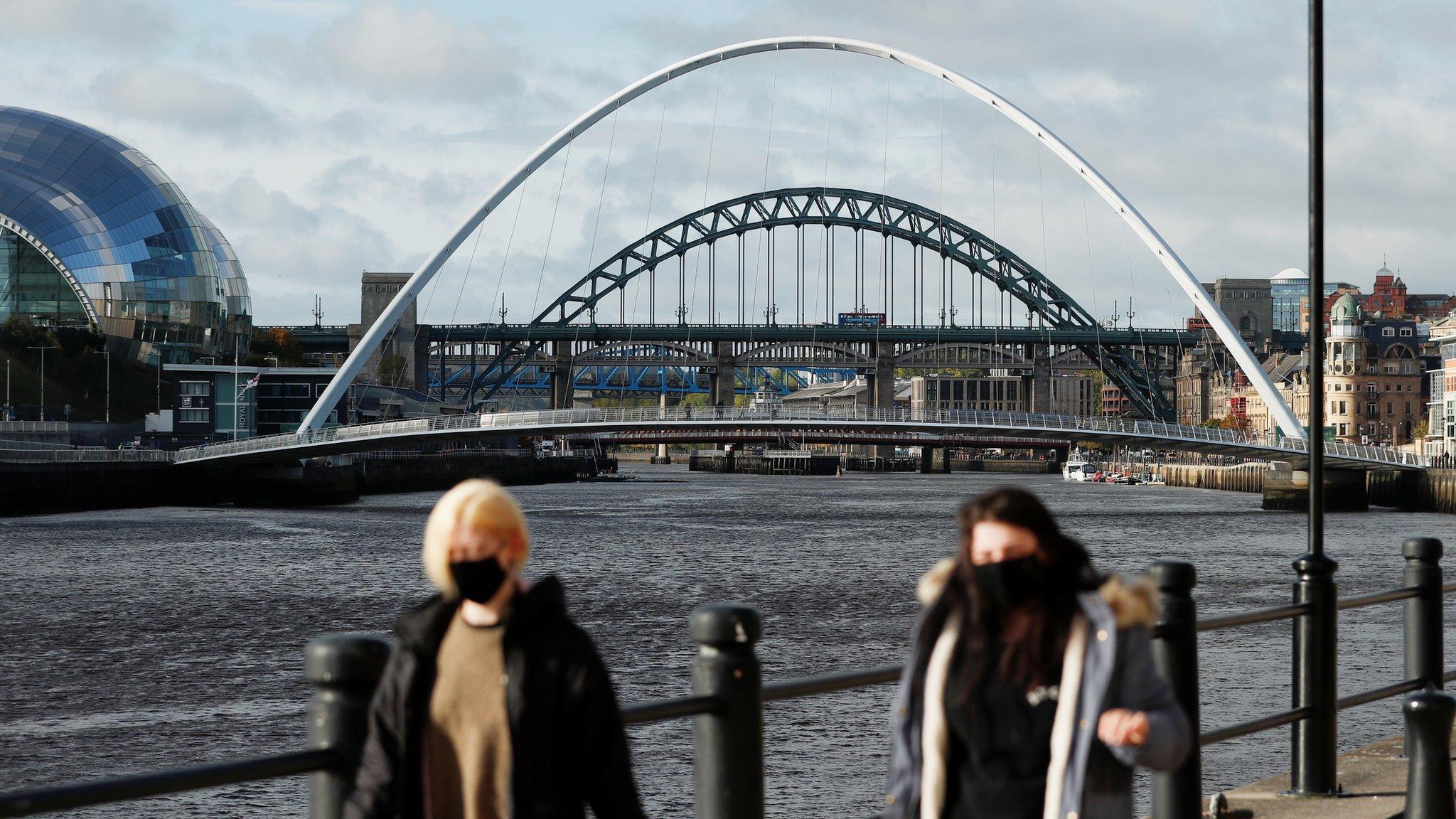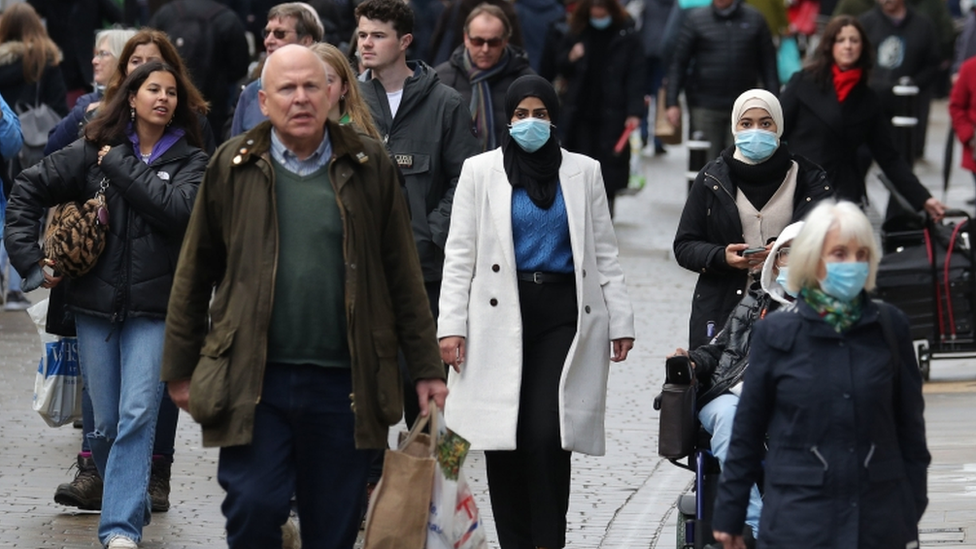Covid: Anger over 'lowest' rate Copeland in tier two
- Published

The borough of Copeland covers much of the west coast of Cumbria
People living in the borough with the lowest rate of coronavirus in mainland England have criticised the decision to keep it in tier two.
The rate of infection in Copeland in Cumbria was 22 per 100,000 people in the week to 13 December, higher only than the Isle of Wight.
Residents said on social media the decision was "absolutely appalling".
The government has said, external the county as a whole had "deteriorated from a relatively low number of cases".
The rate has increased by 86% in South Lakeland, 65% in Eden and 43% in Carlisle council areas in the week to 13 December and the whole county will stay in tier two.
The numbers were too high to allow for allocation to tier one but did not "currently justify inclusion in tier three", the government said.
Alan Cosgrove, from Whitehaven in the borough, tweeted a message, external to Health Secretary Matt Hancock saying: "You and the scientists behind the review of tiers can't be looking at all the data.
Keeping Copeland in tier two with all of Cumbria was "absolutely appalling", he said.
Daniel Hopper tweeted, external that it was a "joke that Allerdale and Copeland are still being dumped with the rest of Cumbria".

LOCKDOWN LOOK-UP: The rules in your area
THREE TIERS: How will the system work?
TESTING: How do I get a virus test?
HOLIDAYS: Where can I go away in the UK?
LOCAL LOCKDOWNS: What happens if you have one?

More than two-thirds of the country will be under the toughest Covid-19 rules from Saturday.
Bedfordshire, Buckinghamshire, Berkshire and Hertfordshire will move to tier three, along with parts of Surrey, East Sussex, Cambridgeshire and Hampshire.
Many areas already in tier three will stay there.
Copeland mayor Mike Starkie said he was "disappointed" the borough remained in tier two.
"I personally believed that, given the incredibly low rates in the borough, which are the lowest in England, Copeland should have been moved into tier one rather than being kept in tier two with the rest of the county."

Follow BBC North East & Cumbria on Twitter, external, Facebook, external and Instagram, external. Send your story ideas to northeastandcumbria@bbc.co.uk, external.
- Published17 December 2020

- Published17 December 2020

- Published1 July 2022
